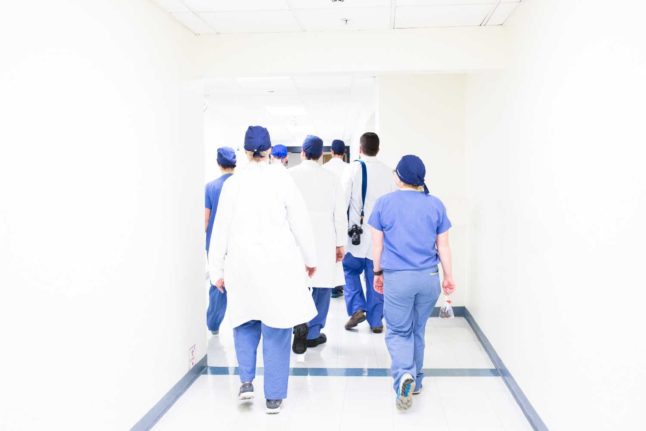Earlier this month, July 22nd was the date when measures were set to be further relaxed.
Austrian authorities had announced a relaxation of mask requirements in shops, with a complete loosening of the mask rules forecast if conditions remained positive.
Delta variant: How worried should people be in Austria?
Unfortunately, with infection rates on the rise, authorities are now going in the other direction.
While masks will no longer be required in retail from July 22nd across most of the country, in Vienna the mask mandate will stay in place for all retail spaces.
A requirement to wear a mask will also be reintroduced in Vienna in theatres and cinemas, a move that has been criticised by Christian Dörfler, Chairman of the Professional Association of Cinema, Culture and Entertainment Companies in the Chamber of Commerce.
Elsewhere in Austria, masks will still be needed in banks, supermarkets, pharmacies, hospitals, care homes and on public transport.
Other tightenings include rules for visiting nightclubs and large events, contact details for visiting restaurants and bars and a tightening of the 3G Rule.
Nightclubs and discos
From July 22nd, only people who have been vaccinated or those who have had a negative PCR test less than 72 hours ago can attend nightclubs.
This rule might also be extended to tent parties.
People who have recovered from the virus or those who have tested negative with antigen tests will not be allowed to attend.
Restaurants and bars
Restaurants and bars will still need to collect contact data for the foreseeable future.
That requirement was set to be relaxed, but will now be kept in place.
Two vaccinations required for green pass
From August 15th, a Covid-19 immunity card – known as the green pass – will only be issued to people after their second vaccine.
EXPLAINED: What is Austria’s Covid-19 immunity card and how do I get it?
Currently, people are entitled to a green pass 22 days after their first vaccination – which is comparatively rare in Europe.
This will change however, with people only considered fully vaccinated 14 days after they have had their second shot.
People vaccinated with the Johnson and Johnson vaccine, which only requires one shot, will be considered vaccinated 22 days after their shot.
Free PCR tests in pharmacies
Ulrike Mursch-Edlmayr, President of the Chamber of Pharmacists, has announced that free PCR tests will soon be available from pharmacies.
The announcement follows the change in night time gastronomy rules with PCR tests now mandatory for unvaccinated people to access venues.



 Please whitelist us to continue reading.
Please whitelist us to continue reading.
Member comments